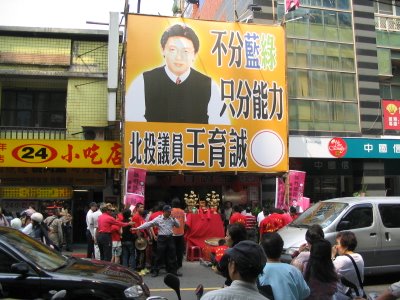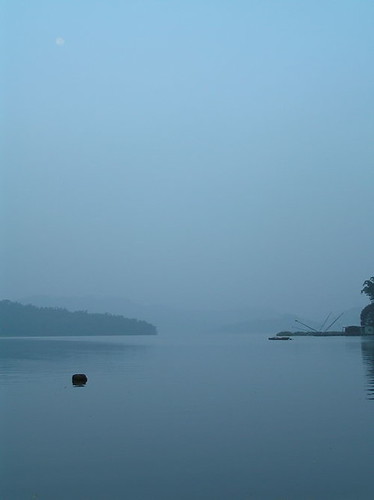Clouting the Blues With Arms
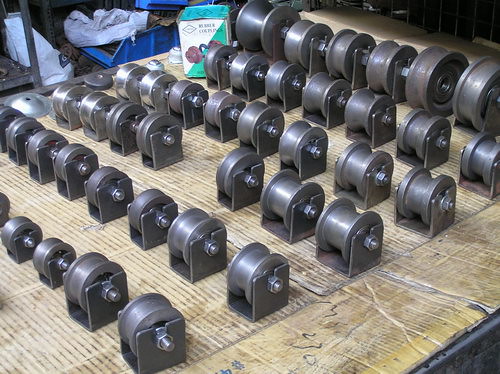 Following on the heels of Feiren's excellent post yesterday on AIT Chairman Steve Young's blunt criticism of Blue obstructionism on the arms purchase, the Taipei Times published a couple of articles today further expanding on the issues.
Following on the heels of Feiren's excellent post yesterday on AIT Chairman Steve Young's blunt criticism of Blue obstructionism on the arms purchase, the Taipei Times published a couple of articles today further expanding on the issues.The main article begins:
In an apparent criticism of pan-blue efforts to block the arms procurement package from reaching the legislative floor, the US State Department on Friday called on the Taiwanese to "hold their leaders responsible for preventing extraneous issues from interfering with urgent defense decisions."
At the same time, the US said "we applaud the Chen [Shui-bian (陳水扁) administration's defense spending goals."
The State Department also came to the defense of American Institute in Taiwan (AIT) Director Stephen Young and indirectly slammed the opposition pan-blue forces for preventing the Legislative Yuan from acting on the proposed procurement of US weapons systems.
The fault is not all the Blues (for too long the DPP declined to split the package into parts and there's no denying that the submarines are massively overpriced -- perhaps the US can encourage movement here by cutting the price in half) but lately the Blues have gone from mere intrasigence to absolute insensate stupidity. They have assured the US several times going back almost a year, dating back to Richard Bush's meeting with Wang Jin-pyng back in December, that they have taken US demands into account. KMT Chair Ma Ying-jeou and Wang promised again back in May to move the arms proposal forward. Visits to Washington by both men brought promises. Over the summer and fall there were other apparent indications of Blue softening. Each time, however, Pharoh's heart was hardened, and the arms purchase was kept in bondage in the procedural committee.
It is important to note that the remarks were not merely Steve Young speaking for AIT here in Taiwan. The State Department enthusiastically supported them (emphasis mine):
In a statement supporting the AIT director's comments on Thursday urging the legislature to approve the arms procurement budget this fall, the State Department said that Young's comments reflected the long-standing US position and assessment of Taiwan's defense needs in light of Beijing's break-neck military upgrade.
Sources say that the administration is increasingly frustrated over the Legislative Yuan's failure to act on the defense budget.
"The dissatisfaction is tactile here, in Congress as well as in the administration," said Michael Fonte, a consultant with the Democratic Progressive Party (DPP) in Washington.
The Taipei Times continued (emphasis mine):
Sources say that Young's comments were in response to orders he was given by the department during a 10-day trip he took to Washington earlier this month. Young briefed his superiors and talked to a wide range of people, including a number of think tanks in Washington, they said.
The sources also say the remarks were meant to reinforce those made by Clifford Hart, the coordinator of the State Department's Taiwan department, last month at a defense industry conference hosted by the US-Taiwan Business Council in Denver.
At that meeting, Hart said it was "urgent" that Taiwan boost its defense spending to counter any war in the Taiwan Strait, and called on Taiwanese leaders to "place national security above partisan politics," and "compromise and bury differences."
Hart also took an apparent potshot at Ma, saying "leaders who aspire to represent Taiwan's people in dealing with the American people should appreciate that their positions right now ... cannot help but inform the sort of relations they will have with Washington in the years to come."
Change is glacial, especially inside the Beltway, but change is in the air. For fifty years the KMT and the US have enjoyed a marriage of convenience that has greatly benefitted the KMT. Now the KMT and its allies are finding out that you can't serve both God (China) and Mammon (the US), and Steve Young has shown them that divorce papers are drawn up and ready to be served. Promises broken mean something -- for whatever you may say about the incompetence and provincialism of DPP foreign policy, there's no denying that the DPP and the US share broad security goals in the region, goals not part of the platform of the KMT and its allies, a position already understood by many conservatives. On Ma's trip to the US conservatives were very suspicious of his claims, and each time the KMT stymies US interests in the region, it confirms the opinions of conservatives.
It's not too late for the KMT to mend fences, but somehow I don't see that happening. The KMT matches the DPP's provincialism with an overweening arrogance that verges on fantasy. And even if KMT Chairman Ma Ying-jeou was willing to serve regional security interests instead of China's long-term interests, the fact remains that KMT ally the People First Party (PFP) is more hardline than the KMT. Ultimately divisions within the pro-China camp may prevent a reversion to reality on the part of the Blue leadership.
As for me, for the entire year and more I've been asking US officialdom to send someone over here with the clout and the understanding to talk directly to the Blues and inform them that the world doesn't revolve around them, and, to get the US to do it again and again until the message sinks in. It's an absolute delight to see the US actually doing that. Now if only Steve Young would brng me back a 10 pound brick of fresh parmesan from his next trip to the States, AIT would complete my happiness....
EXTRA: This Taiwan Focus post, saved on my blog, written by someone I know to be an expert, has some very good background info on the arms purchase.
[Taiwan] [US] [China] [DPP] [Heritage Foundation] [Ma Ying-jeou] [PFP] [Taipei Times] [US Foreign Policy]

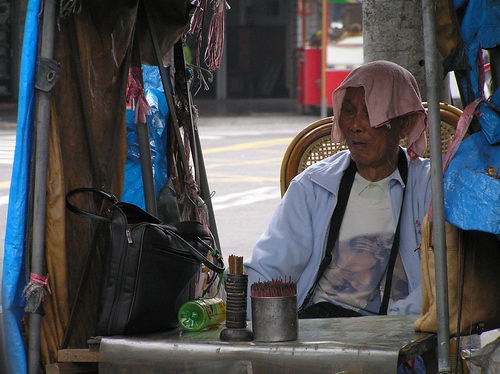
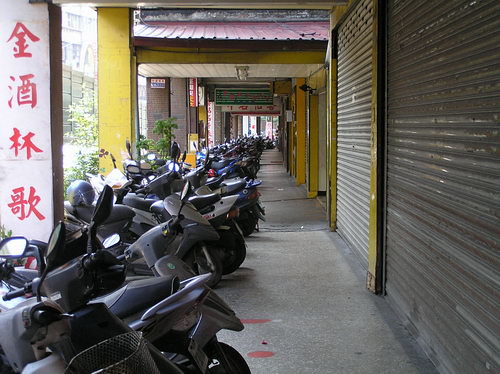 Today the the
Today the the 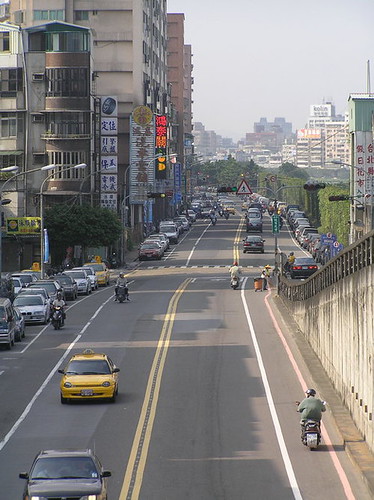 STOP_MA volunteered to bring home the bacon with a guest blog on more bias and error in the international media. Enjoy!
STOP_MA volunteered to bring home the bacon with a guest blog on more bias and error in the international media. Enjoy! The international media typically does spotty work on Taiwan, but the BBC definitely stands out for poor writing on happenings on the Beautiful Isle. The BBCs coverage is looking more like Xinhua's then the work of a democratic media writing from a democratic standpoint; it is, at the moment, to the right of even the local pro-Blue Chinese papers.
The international media typically does spotty work on Taiwan, but the BBC definitely stands out for poor writing on happenings on the Beautiful Isle. The BBCs coverage is looking more like Xinhua's then the work of a democratic media writing from a democratic standpoint; it is, at the moment, to the right of even the local pro-Blue Chinese papers.